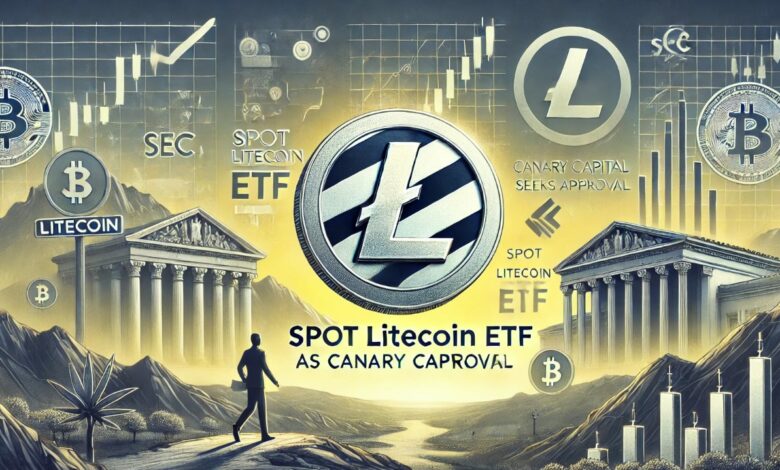
In a groundbreaking stride for the cryptocurrency sector, Canary Capital, a notable asset management firm, has taken a significant step by filing an S-1 registration statement with the United States Securities and Exchange Commission (SEC). This filing is aimed at launching the nation’s first spot Litecoin ETF, marking a potentially transformative moment in the financial landscape.
Exploring the Potential of a Litecoin ETF
On a recent Tuesday, Canary Capital made headlines with the announcement of its plans to launch a Litecoin ETF. The firm underscored Litecoin’s unique attributes, describing it as a “unique and compelling investment opportunity.” With a remarkable track record of maintaining 100% uptime since its inception, Litecoin presents a robust case for investors seeking stability and reliability in the volatile crypto market.
Furthermore, Canary Capital highlighted Litecoin’s status as a frontrunner in real-world cryptocurrency payments. This reputation is bolstered by its collaboration with BitPay, a leading payment processor, thereby reinforcing the currency’s practical utility in everyday transactions. This strategic partnership enhances Litecoin’s credibility and appeal as a viable investment option within the crypto sphere.
Beyond Litecoin: Expanding Horizons in Crypto Investments
In addition to its ambitious Litecoin ETF initiative, Canary Capital has also submitted an application for an XRP ETF. This move signifies the growing institutional interest in diversifying cryptocurrency investments. The increasing number of ETF applications reflects a broader trend among financial institutions seeking to explore and capitalize on crypto-related financial products.
Notably, Canary Capital’s filing follows a similar initiative from investment firm Bitwise, indicating a competitive and rapidly evolving landscape where financial entities are keen to tap into the potential of digital assets.
The Complex Commodity vs. Security Debate
Despite the burgeoning interest in cryptocurrencies like XRP, the regulatory landscape remains complex and often contentious. The ongoing legal battle between Ripple, the blockchain payment company behind XRP, and the SEC highlights the challenges faced by crypto entities. The core issue revolves around the classification of XRP as either a commodity or a security, with significant implications for regulatory approval processes.
In contrast, Litecoin’s classification as a commodity by the US Commodity Futures Trading Commission (CFTC) earlier this year offers a glimmer of hope. This designation could potentially streamline the approval process for the proposed Litecoin ETF, as commodities typically encounter fewer regulatory barriers compared to securities, which are subject to more stringent oversight.
Market Impact: Litecoin’s Response to ETF Developments
The announcement of Canary Capital’s filing for a Litecoin ETF has already reverberated through the market. At the time of writing, Litecoin (LTC) has experienced a notable price increase, rising over 3% to reach a trading price of $68.73. The news briefly propelled the price above the $70 mark, reflecting investor optimism and the potential impact of a successful ETF launch on Litecoin’s market dynamics.
As the crypto market continues to evolve, the introduction of innovative financial products such as the proposed spot Litecoin ETF represents a pivotal moment. These developments not only offer new opportunities for investors but also contribute to the ongoing dialogue about the future of digital currencies in the global financial ecosystem.
The journey towards regulatory approval and market acceptance is fraught with challenges and uncertainties. However, the increased interest from institutional players like Canary Capital underscores the growing recognition of cryptocurrencies as a legitimate and potentially lucrative asset class.







